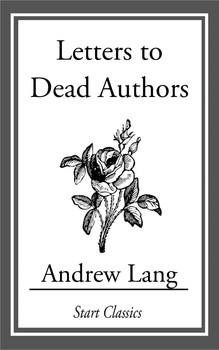LETTER–To Alexandre Dumas
byLetter to Alexandre Dumas opens with recognition of a literary legacy as rich and enduring as the great legends passed down through generations. Your pages, filled with vitality and courage, have not aged but only deepened in resonance. Though you once feared your creations might vanish like castles in the sand, their strength now appears more elemental—etched into culture, unshaken by time or fashion. Like the stories of Scheherazade or Boccaccio, yours continue to charm, stir, and thrill. Your voice, kind yet bold, introduced a warm humanity into literature that defied the colder philosophies creeping into fiction. The joy you gave readers has outlived the moans of critics and continues to refresh weary imaginations.
Your heroes lived not for mere sensation but for honor, loyalty, and gallant friendship. Their swords flashed not only in battle but in defense of the noble-hearted, and their laughter rang through palaces and prisons alike. D’Artagnan, Athos, Porthos, and Aramis are now more than names; they are fixtures in our literary inheritance, beloved like kin. And in Edmond Dantès, you gave us a figure who endures pain only to rise with a dignity shaped by both vengeance and wisdom. These characters were not conjured by formulas or borrowed brilliance. Their souls were poured from your own, regardless of who helped shape the scaffolding. Even your so-called “collaborators” owed their best moments to the spirit you breathed into every scene.
It is curious how often great works are criticized not for flaws but for their success. That charge of frivolity—frequently hurled at tales that dare to entertain—rings hollow against the heart you placed into your stories. Beneath the swashbuckling surface lies an affirmation of life: that courage is worthwhile, that friendships are sacred, and that even suffering can be redeemed. Your books ask us not to wallow in despair but to rise with laughter, to cherish bonds, and to face injustice with flair and honor. While many authors probe the shadows of the soul, you illuminated its nobler corners, and that light has lasted. Your scenes, though vivid and theatrical, never forget the beating pulse beneath costume and swordplay.
Even now, amid evolving literary tastes, your work provides a welcome contrast to grim realism and sterile introspection. Readers weary of ambiguous morals or relentless gloom find comfort in your clarity—of motive, of character, of emotion. You did not shy from complexity, but you offered resolution, not confusion; momentum, not inertia. There is something timeless in that honesty. In your battles and escapes, love affairs and conspiracies, the reader never loses track of what matters. You honored your audience by assuming they wanted delight, not lectures—stories that could be raced through, yet remembered. That was no small gift.
The world has changed, yet still your chapters are devoured, your heroes quoted, and your villains reviled. Translations may alter your phrases, but your rhythm and vitality persist across languages. In every country where adventure is loved, you remain a lodestar. And unlike many authors, whose work fades once the century passes, you continue to be adapted, reread, and discovered anew by younger minds. This is not the fate of a “popular” writer alone, but of one who speaks to something eternal in human nature. The thirst for heroism. The thrill of justice. The sweetness of redemption.
If your shadow falls over modern literature, it does so with generosity, not weight. Writers still draw from your wells, hoping to capture a fraction of your spirit. Yet even with so many followers, your tone remains inimitable. You never sought to moralize, but your work still carried moral weight. You never aimed for tragedy, but your stories knew sorrow. You chose delight, and in doing so, you granted truth—because joy, too, can reveal the depths of character.
Where critics once fretted over literary purity, readers voted with their hearts. Your novels, passed down like heirlooms, remain alive in ways most solemn volumes do not. In the quiet, you are read. In excitement, you are remembered. And when readers seek courage or comfort or clarity, they return to you—not out of nostalgia, but out of need. You were not writing for your time alone. You were writing for all of us who still believe stories can inspire greatness, and remind us why life, though often harsh, is always worth living boldly.

